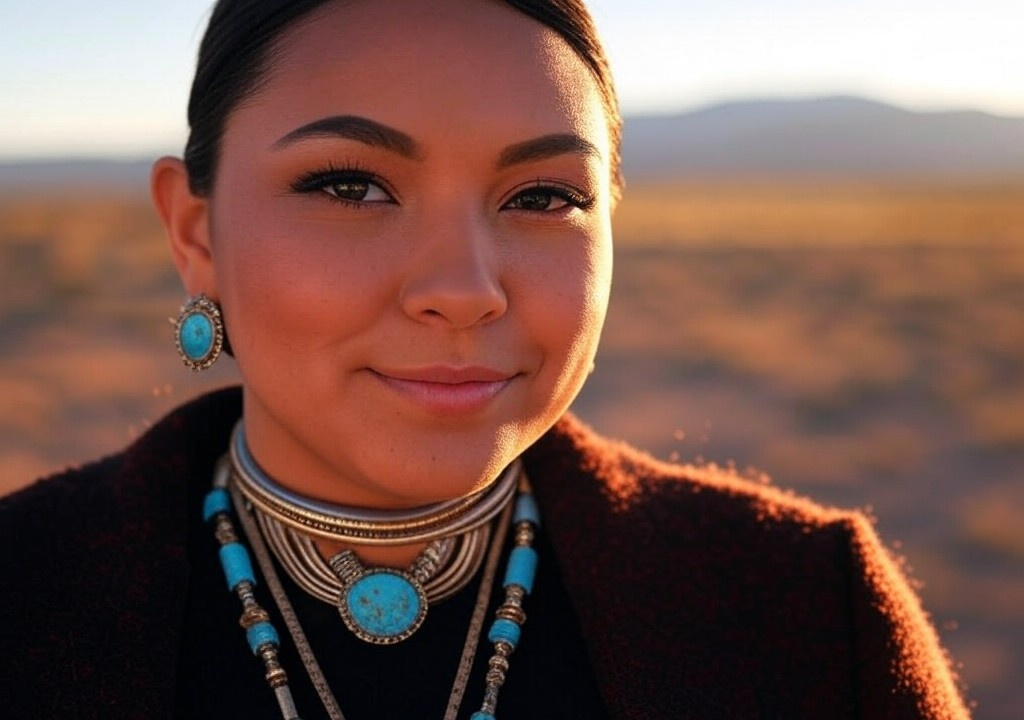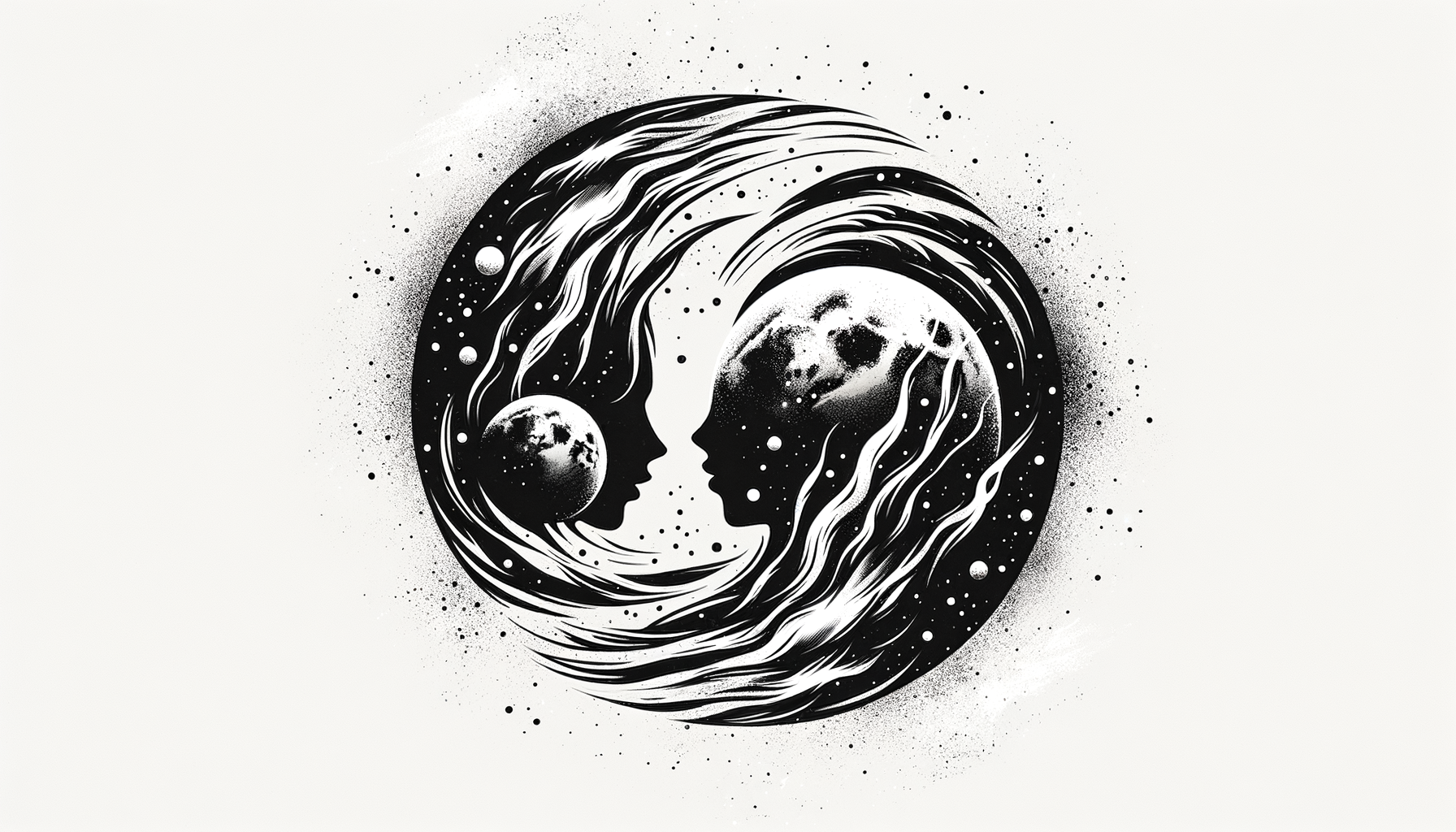The Moment That Brought Me to My Knees (Literally and Metaphorically)
We never see it coming, do we? The moment that tests everything: our patience, resilience, and sometimes, our willpower to not throw our phone against a wall in frustration. Mine wasn’t a breakup (though, been there, done that), or a dramatic fight. It was something far more unexpected: my first time bringing a partner home to my family back on the Navajo Nation. Spoiler alert—it didn’t go as planned. But it taught me more about love, identity, and patience than anything else I’ve navigated.
Let’s just say, when you mix centuries-old traditions with millennial dating dynamics, things can get...interesting. Grab some popcorn, because this ride has family feasts, cultural curveballs, and one awkward run-in with a ceremonial elder.
The Build-Up: More Pressure Than a Shondaland Finale
Picture this: I’m living in Portland, dating a sweet, outdoorsy guy named Noah. Think “he probably owns three flannels” vibes. After months of dating bliss—hiking dates, sharing fry bread recipes, and him bravely trying mutton stew—I knew it was time to level up. “Come visit my family,” I said casually, as though it wasn’t code for let’s test the foundation of this entire relationship.
To Noah, “meeting the family” sounded like a fun adventure. To me, it was like walking a tightrope while juggling flaming hoops. My family isn't just any family. They’re my foundation, my culture, my everything. They’re warm, funny, and fiercely protective. And bringing Noah home to the reservation meant introducing him to a world layered with meaning, history, and, yes, a lot of unspoken expectations.
Also, let’s not gloss over the fact that my lovely, overachieving aunties would immediately size him up like a sheep at a livestock auction.
When Cultures Collide: Welcome to the Wild West
Things started off fine enough. Noah traded polite nods with my uncles, complimented my grandma’s fry bread (smart move), and managed to laugh at my cousins’ relentless teasing. Points for effort. But then came the questions.
“What clan are you?” one cousin asked with a raised eyebrow.
Noah blinked. “Uh… I’m from Eugene. Does that count?”
It got awkward. Fast. Imagine a record scratch—only the record is ceremonial music, and the scratch is my inner panic.
To Navajo people, the clan system is everything. It tells your story, your family connections, your place in the community. Noah couldn’t possibly have a clan—he wasn’t Navajo. But I also realized I’d dropped him into the deep end without much prep, assuming he’d float. Rookie mistake, folks. I’d forgotten to bridge the context, to offer the lifeline of explanation before the questions even hit him.
When All Else Fails, Feast
If there’s one thing Navajo gatherings do well, it’s food. Big, delicious, never-ending meals with more varieties of stew than I could count. Noah seemed relieved to have shifted focus from clans to chili. And then, as if on cue, my grandma decided it would be the perfect moment to tell her version of when I cried as a toddler before my first Yé’ii ceremony.
As I tried to steer the conversation to safer ground (think meteor showers, not toddler tears), Noah was busy helping serve food. It was a thoughtful gesture, and my grandma immediately declared him “not useless.” High praise from her!
But while the feast thawed some tension, I realized Noah—try as he might—still felt like an outsider navigating a maze without a map. And honestly? I felt the same way. The balancing act of honoring my family while bridging a cultural gap was stretching me thin. It wasn’t just about Noah fitting in—it was about me holding space for two very different parts of my world.
The Breaking Point: When the Shoe Drops
Remember the ceremonial elder I mentioned? Yeah, this is where things derail. During a visit to a nearby sacred site, we ran into him—an elder who knew my family history better than I knew my own birthdate. He asked Noah how long we’d been married. Noah stammered, and I burst out laughing in panic, the kind of laugh that says, “Please let the earth swallow me whole.”
From the elder’s perspective, Noah and I traveling together was…well, let’s just say it suggested a higher level of commitment. My cheeks burned as I scrambled to explain modern dating norms. Instead, I accidentally ended up giving a speech about trust and independence. The elder nodded sagely but warned us about coyotes (the literal kind, not the metaphorical ones). Noah looked…lost.
On the drive back, I was quiet, letting the weight of the day—and my many missteps—settle in. I felt like I’d failed everyone: my family, Noah, and myself. Tears brimmed but didn’t fall. I just stared out at the red mesas, thinking, This is a disaster.
The Lesson: Love Doesn’t Come With a Blueprint
The rest of the trip wasn’t perfect, but it wasn’t a total flop either. Noah didn’t magically gain a clan or become fluent in my family’s humor, but he tried. And he listened. And when we got back to Portland, we unpacked it all—how overwhelming it had been for both of us, how he wanted to learn, and how I’d set him up for failure by not preparing him better.
Here’s the truth I walked away with: relationships are messy because people are messy. Add culture, tradition, and deeply personal history, and you’ve got yourself a beautiful, tangled web. But that's the point of love, isn’t it? Not to arrive fully formed, but to show up, reach across the gaps, and meet each other halfway.
Takeaways: For Anyone Going Through “That Moment”
Let’s get real. Whether you’re introducing your partner to your family, merging two very different worlds, or just trying to keep your relationship steady, here’s what I’ve learned:
- Overcommunicate. Always. Don’t assume your partner knows all the subtext. Things that are second nature to you might need explaining.
- Be ready to laugh at yourself. Humor is a survival tool, especially when Uncle Pete starts quizzing your partner about his childhood baseball stats.
- Strengthen your foundation first. Know where you and your partner stand before involving others. It’s like fortifying your home before inviting a hurricane inside.
- Remember it’s not all on you. If your partner genuinely wants to make it work, they’ll roll with the weirdness, the side-eyes, and even the occasional elder-induced awkward moment.
Closing Thoughts: What Surviving Teaches Us
I’ll be honest: I didn’t think I’d survive that weekend. But I walked away stronger—and so did Noah. Relationships test us because they ask us to be vulnerable. They demand we let go of perfection and embrace the messy beauty of being human. And sometimes, those moments that feel like disasters? They’re actually the sparks that light the deepest fires of connection.
So here’s to every awkward encounter, every stressful gathering, and every learning curve. Because they don’t just challenge us—they shape us. And if you’re lucky, they’ll leave you with a partner who doesn’t just survive the feast but helps serve the stew. After all, that’s love.




















